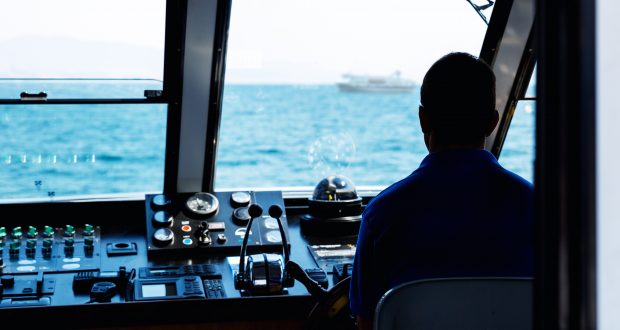The US Coast Guard advised mariners on how to achieve safe navigation in case of GPS interference, as approximately 20 vessels transiting the northeast portion of the Black Sea have experienced such cases from June 2017.
During the week of June 19, the master of one of the vessels contacted the US Coast Guard Navigation Center (NAVCEN) to report GPS disruption. The steps he took to maintain situational awareness and safe navigation are good examples of techniques mariners can use during such an event, and NAVCEN shared them with the maritime community.
On paper charts, the master used radars to mark the bearing and distance of any relevant areas of the coastline. He switched his Electronic Chart Display (ECDIS) to Dead Reckoning (DR) mode and used the radar overlay function to confirm his position. Because the vessel was waiting and drifting in an Off Port Limit (OPL) call status, the master regularly entered an offset on the ECDIS to match the radar overlay. As a verification method, he then repeatedly compared his paper charts to ECDIS. The area where he was drifting was too deep to use the assistance of his Echo Sounder for further verification, but he noted that it could have been used in suitable depths.
When back underway to the pilot station after drifting/OPL, he used the Parallel Indexing (PI) method on both of his radars. The master noted that the use of the PI tool when approaching the coast or channeling is an efficient and accurate way to confirm position, drifting and determine turning waypoints. The vessel he was operating did not have any other satellite positioning systems, but the master reported that the above methods worked well during the incident.
Situational awareness, to include verified position and velocity, is vital for safe and effective commercial operations. Although GPS has proven to be extremely reliable, NAVCEN stresses that it’s important to ensure alternative methods and systems are available, understood and used. Since few mariners experience a sustained loss of GPS, it’s easy to become complacent. Therefore, manual checks and other back-up systems must be ……(Read More) Source: SAFETY4SEA

